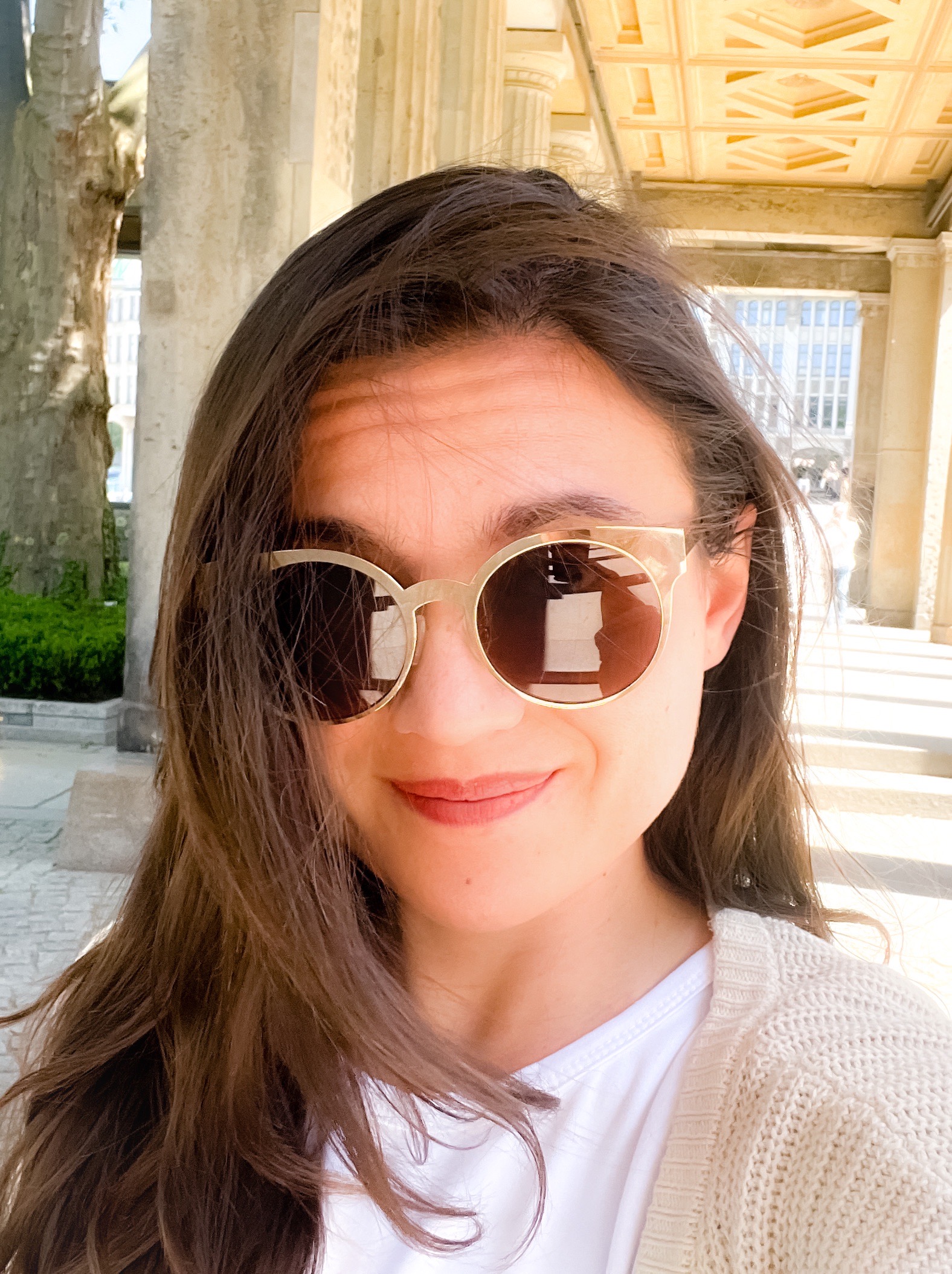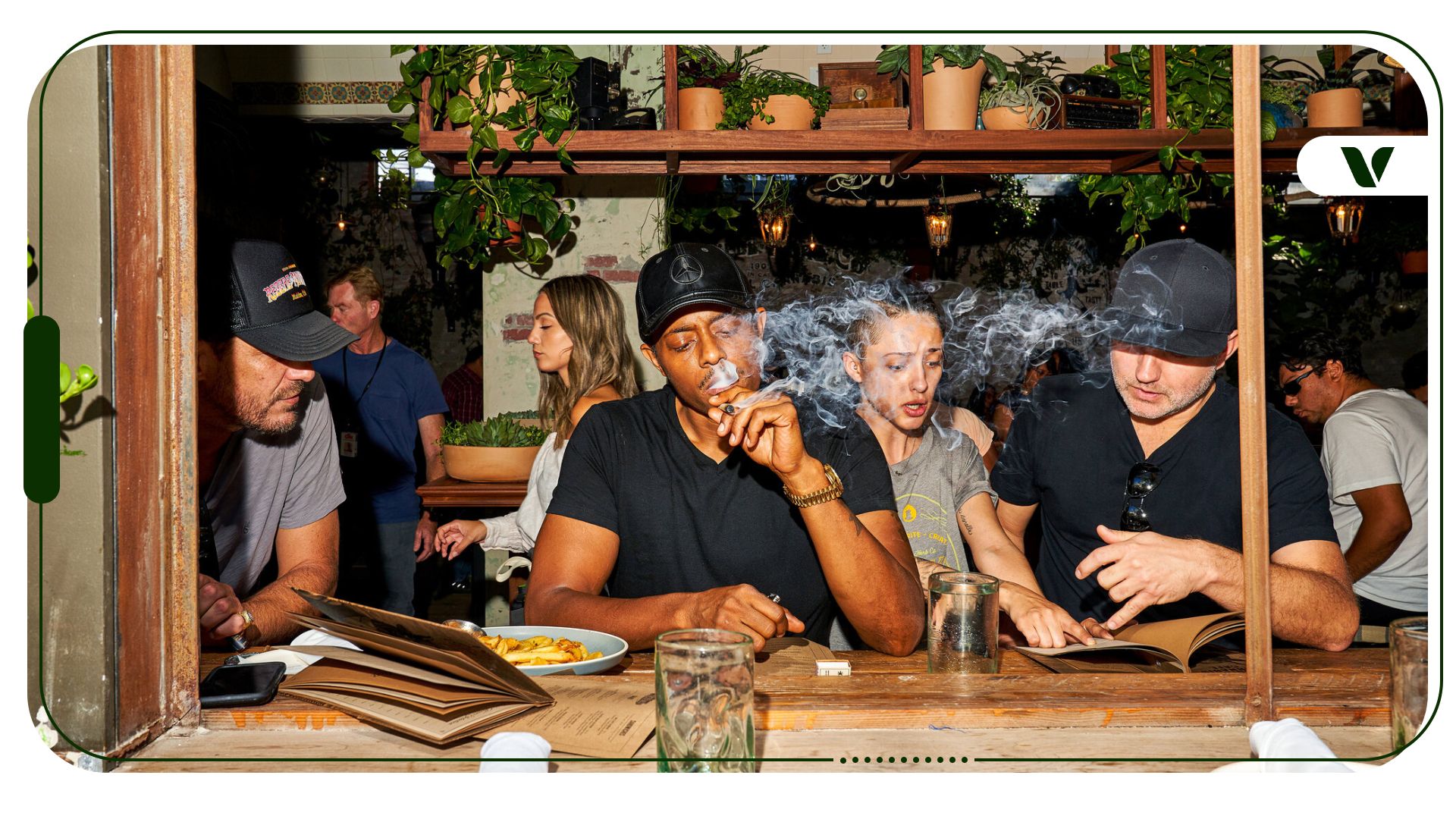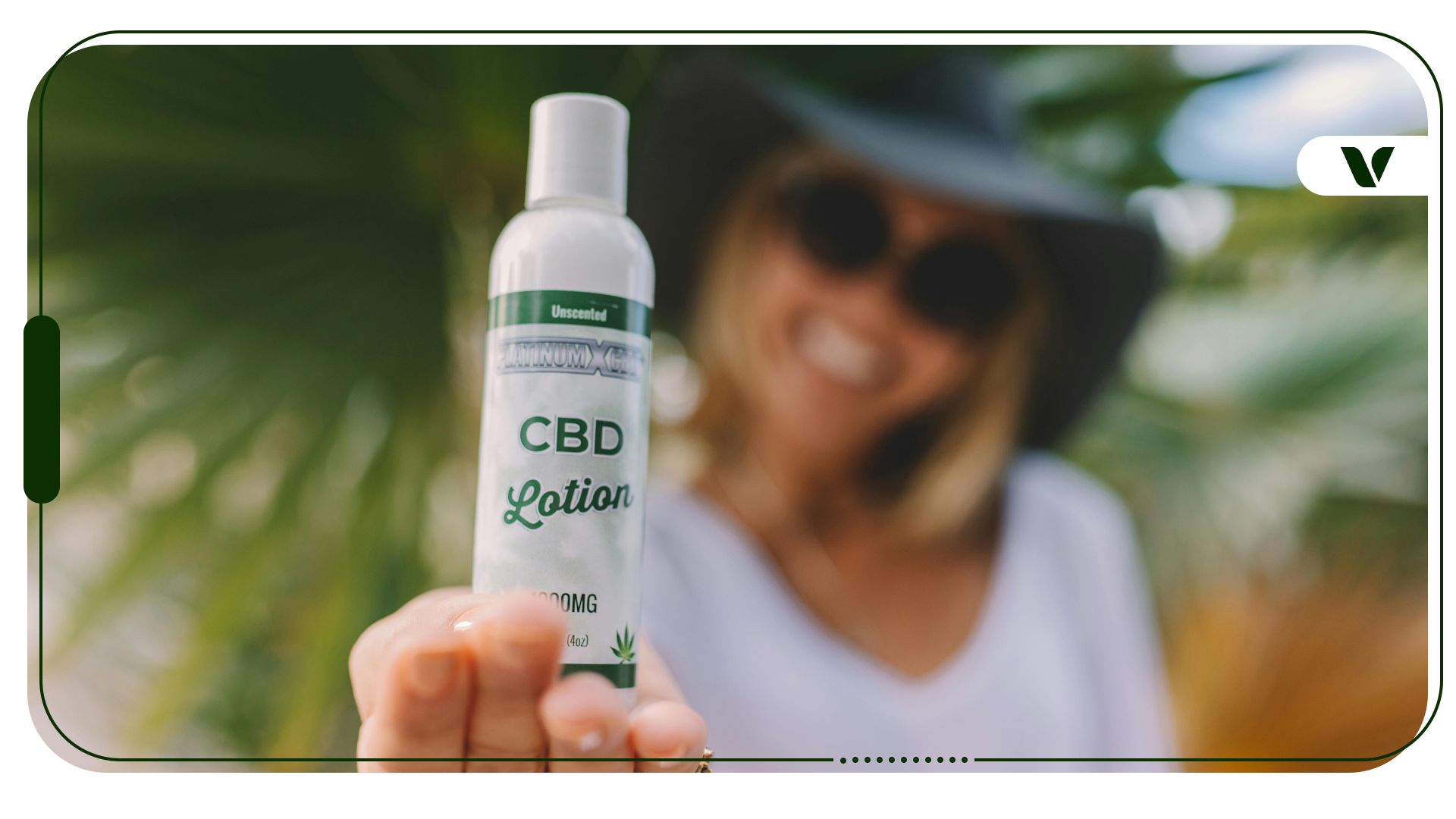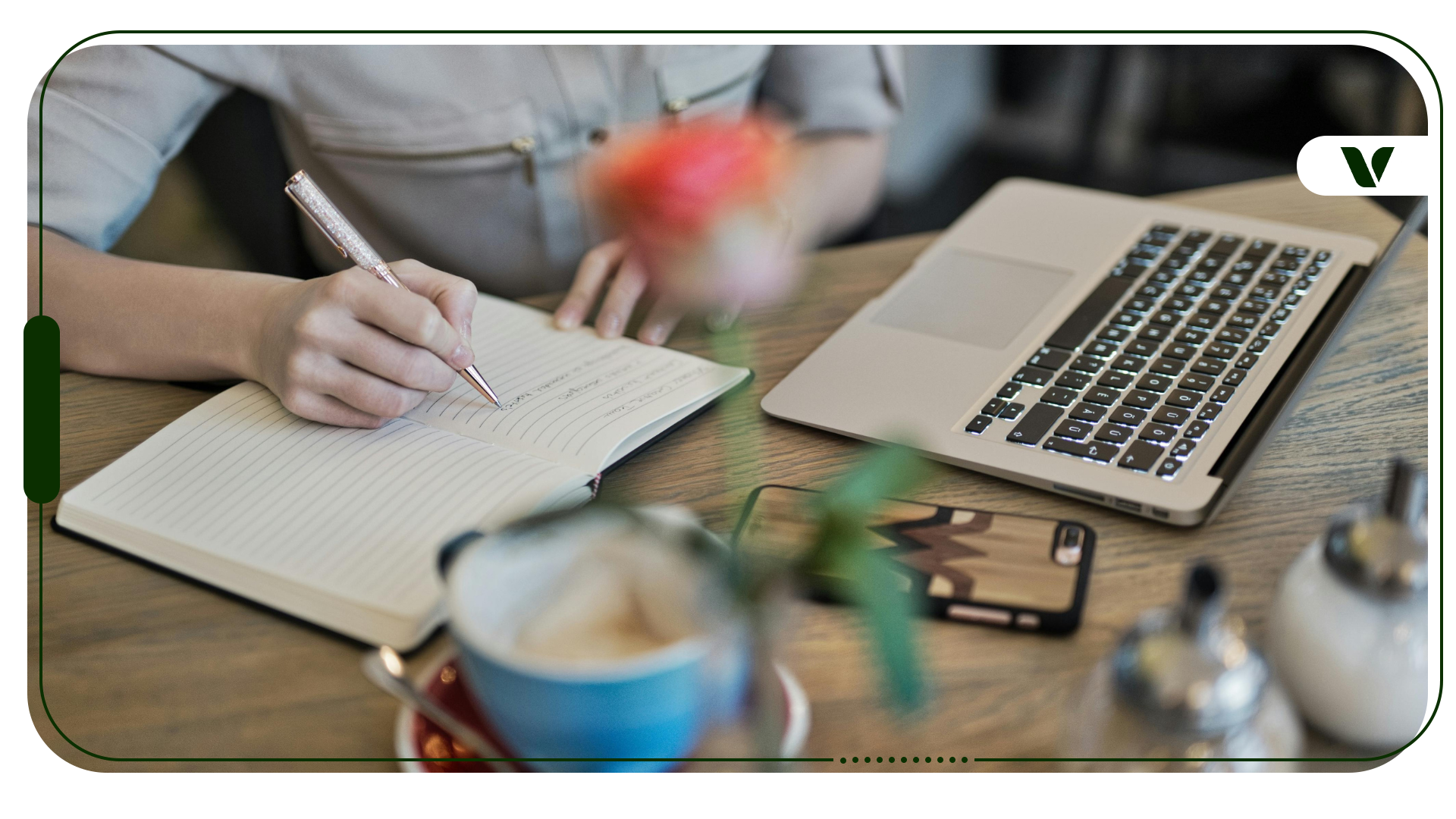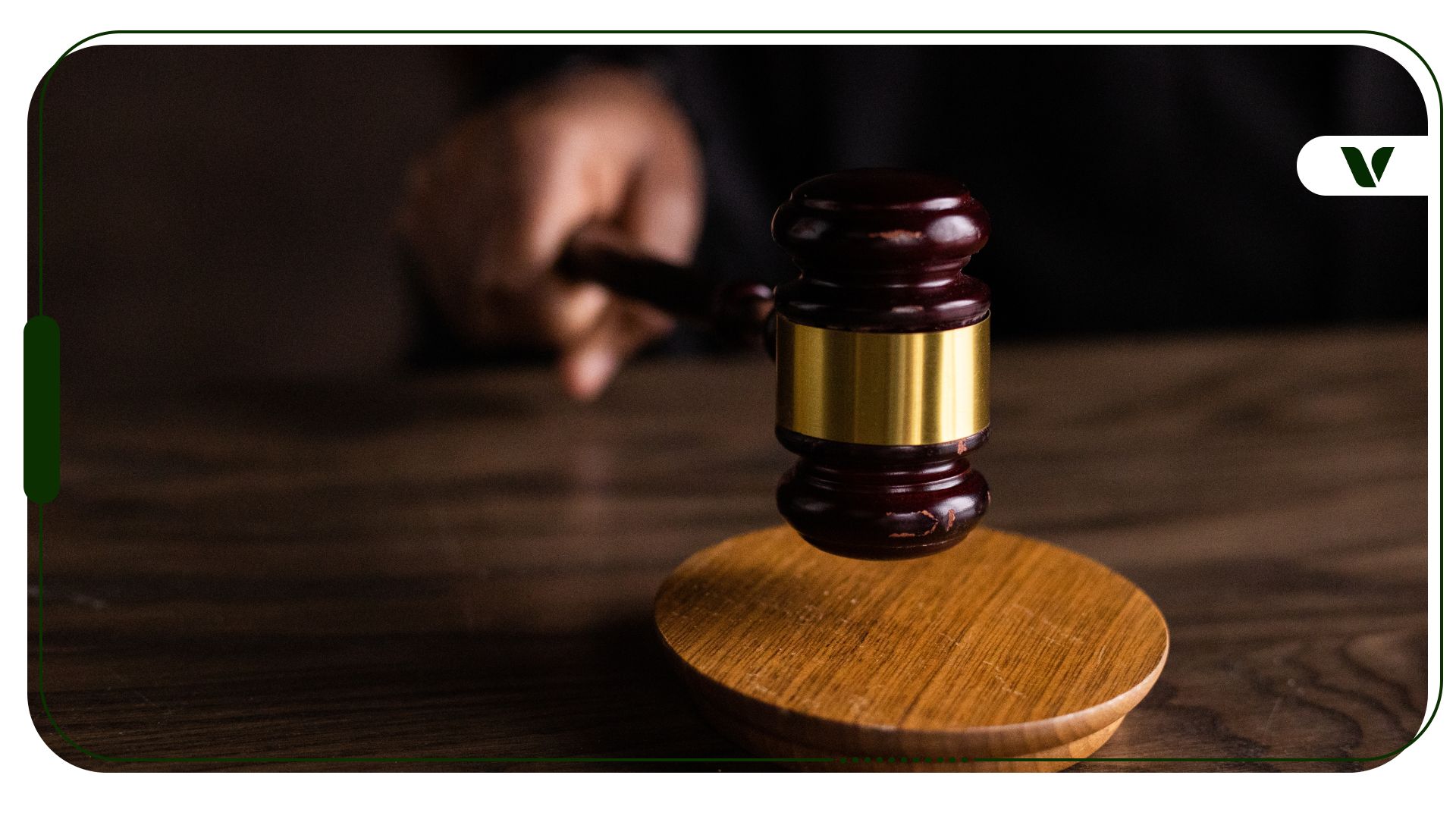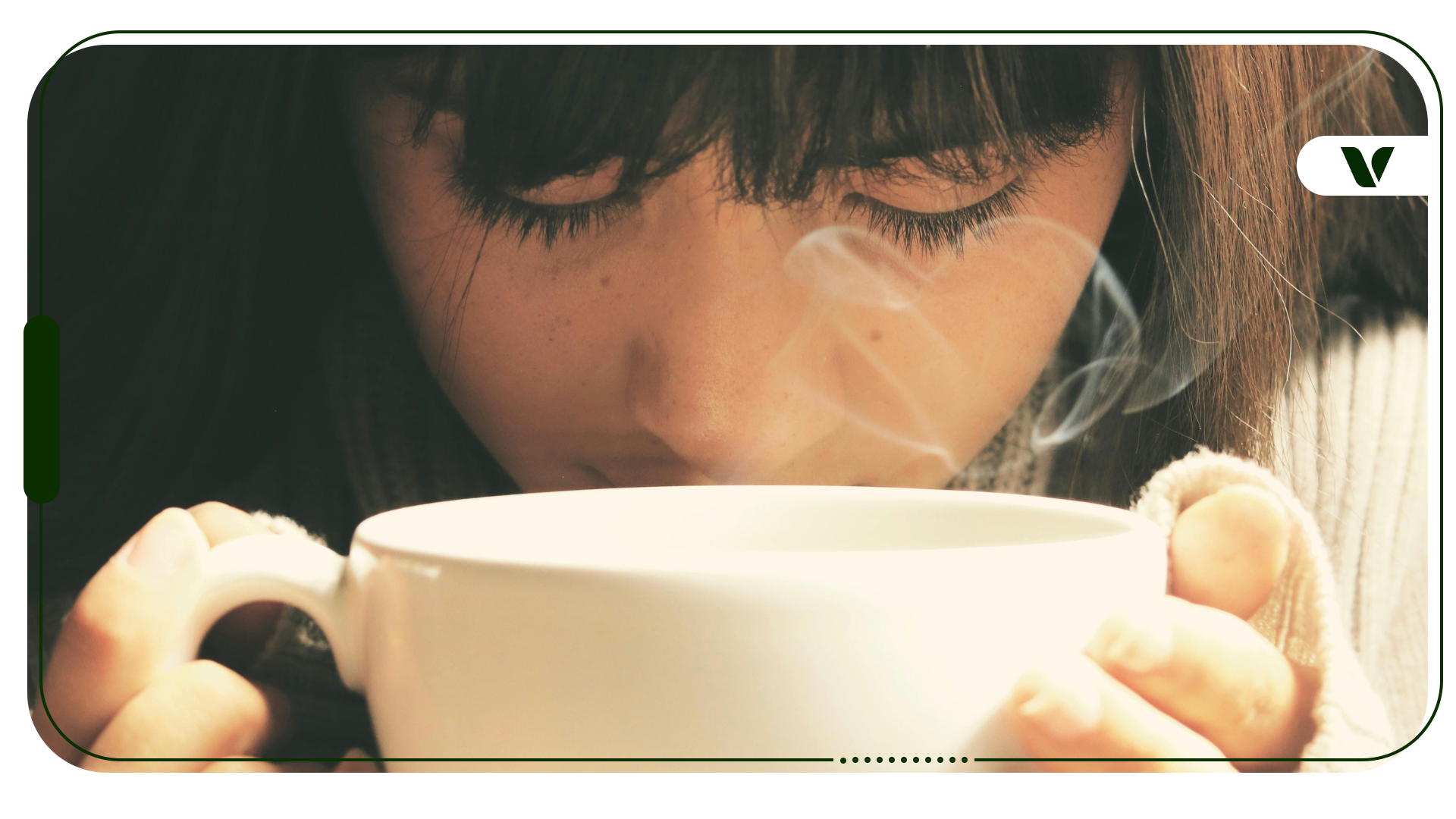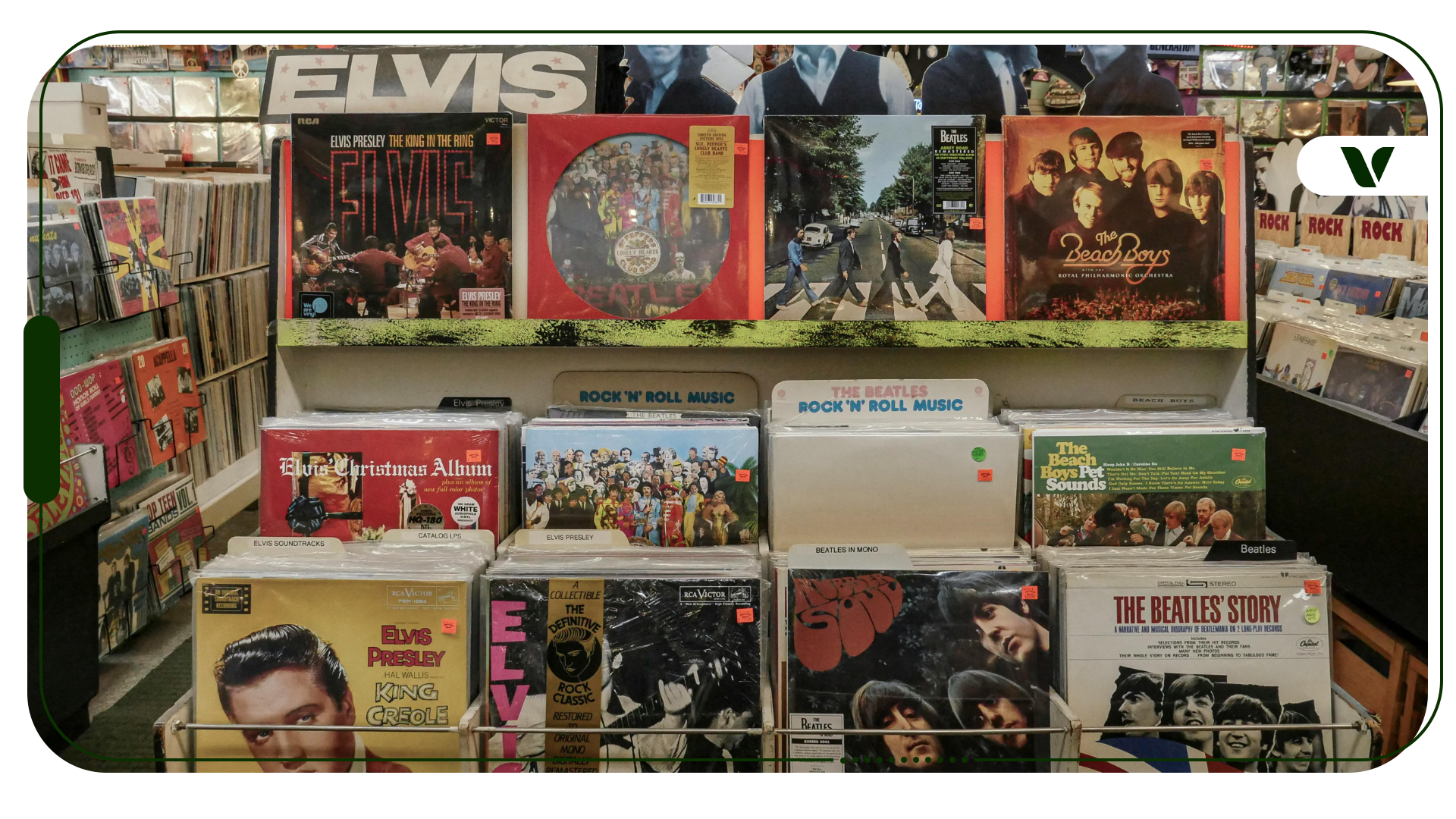As cannabis legalization increases in popularity across the nation, there has been growing interest in providing fun, social, and public spaces for consuming weed. Although bars allowing alcohol consumption are legal in every state, as of 2024, just 12 of the 24 U.S. states with legalized adult-use cannabis programs allow for on-site consumption of cannabis at regulated locations. Of those 12, only five states have opened at least one consumption lounge. Some of these on-site-use locations are known as “cannabis cafes,” whereas others are considered “consumption lounges.”
While some people might use these terms interchangeably, there are distinct permissions and regulations associated with cannabis cafes vs. consumption lounges. These differences are useful to understand if you are planning some cannabis tourism, starting a business, or simply want to be more familiar with your local laws.
In this article, we will address some of the key differences between cannabis cafes and consumption lounges, examining the legal and social differences between these consumption spaces and exploring some ongoing developments happening towards a more social cannabis culture.
What is a Cannabis Consumption Lounge?
In almost every state that has legalized adult-use recreational cannabis (except for, perhaps, New York), users are still forbidden to consume cannabis products in any public place. This means consumers are generally restricted to their private homes if they want to legally enjoy some cannabis products, whether smokeable or edible. In a social context, cannabis consumption can become almost a furtive or even shameful activity with its indecency meant to be hidden from public view, rather than being a potentially enriching, energetic, and social experience.
Fortunately, the emergence of legal cannabis consumption lounges offers us a solution to this problem.
Cannabis consumption lounges are basically cannabis retail locations where cannabis can be consumed on-site. In certain states, regulations for cannabis purveyors legally permit cannabis retail establishments to allow in-store consumption, which means that customers in these states can use their cannabis purchases right at the dispensary.
Such establishments will often seek to redefine the cannabis experience by offering guests luxurious atmospheres and clever social spaces where you can enjoy a memorable time out with good friends, or even meet new ones, all while sampling various cannabis products. Someone might pass a joint around, another person may rent a bong to share hits of a unique strain, or people may try sampling each other’s cannabis-infused cocktails. In this way, having a public consumption space allows people to enjoy the effects of cannabis in social, stimulating environments, rather than in secrecy on somebody’s basement beanbag.
In states where consumption lounges are legal, the law permits on-site consumption of cannabis products at a dispensary or other licensed event location. However, cannabis consumption establishments are not allowed to sell any non-cannabis food or beverages. This is the major difference between a consumption lounge and a cannabis café: consumption lounges are only for using cannabis products, whereas you can purchase and enjoy non-cannabis foods and drinks at a cannabis café location.
What is a Cannabis Café?
Currently, in many adult-use legalized states, it is illegal for cannabis retail establishments to provide non-cannabis food and drink for sale, with only Alaska, Colorado, Michigan, and Nevada (and starting in 2025, California) explicitly allowing for consumption lounges to prepare and serve food onsite. Hence, establishments that serve non-infused food and drink while also allowing cannabis consumption on-site are known specifically as cannabis cafes.
A cannabis café is a cannabis retail business modeled after the famous coffee shops in Amsterdam, where customers are able to get more than just tea or coffee. These European coffeeshops – which are technically illegal in the Netherlands due to the nation’s federal ban on cannabis, but they are “tolerated” if they comply with local regulations – provide selections of typical tea and coffee beverages as well as food offerings alongside smokeable or edible cannabis, which guests can consume onsite while enjoying the café environment.
Unlike at American dispensaries, where customers typically buy their cannabis products from a counter and then leave the premises to use them, Dutch coffeeshops allow visitors to linger for hours. In the Netherlands, roughly 700 cannabis consumption cafes have provided a vibrant social environment for purchasing and consuming cannabis alongside offerings like coffee, food, and live music.
In the U.S., similar consumption-friendly cafes are legal in select states, and these locations operate according to the same rules as ordinary consumption lounges. However, cannabis cafes are slightly different from regular cannabis consumption lounges. Cannabis cafes permit patrons to purchase and consume cannabis products on-site, and there is also non-infused coffee and food available to order like a regular restaurant or bistro.
Cannabis Cafes vs. Consumption Lounges: Key Differences
Cannabis Cafes
- The most significant difference between a cannabis café and a consumption lounge is the availability of non-cannabis food and drink. Cannabis cafes have specific licenses for serving food according to the laws of particular states that allow food and beverages to be served at consumption lounges.
- Like a restaurant or other eatery where food is ordered and prepared.
- Along with food, you can also consume cannabis products, like joints or edibles, onsite.
- Not legal in every state that allows cannabis consumption at retail locations.
- Depending on state laws, sometimes a regular consumption lounge can act as a cannabis cafe by serving prepackaged food or food prepared offsite, or by charging food and cannabis checks separately, to get around legal restrictions on serving food.
- No state currently allows alcohol to be served to cannabis users at consumption spaces, and most states do not allow alcohol to be consumed at cannabis cafes at all.
Cannabis Consumption Lounges
- Legal in 12 states: California, New York, Nevada, Colorado, New Mexico, Illinois, New Jersey, Michigan, Missouri, Minnesota, Maryland, and Alaska.
- Allow on-site cannabis consumption at regulated locations but with legal restrictions on serving non-cannabis food and drink.
- Often located in retail establishments that sell cannabis products on-site, but not necessarily. Some consumption lounges are strictly lounge spaces for using cannabis and are not dispensaries.
- Some locations do not require you to purchase from the on-site dispensary and welcome BYOC (bring your own cannabis) customers for a fee.
- Depending on local and state laws, many consumption lounges allow cannabis smoking indoors, but some states or localities restrict smoking to outdoor patios. In Minnesota, where smoking is not allowed indoors, consumption lounges are only permitted to offer cannabis-infused food and drink.
- In many states, localities are allowed to opt out of authorizing businesses for onsite cannabis consumption. Certain localities are more cannabis-friendly than others.
- Some states distribute temporary marijuana event licenses for special gatherings allowing onsite consumption, such as pop-up events or parties.
The Future of Social Consumption
Although city approval is often required before opening either a consumption lounge or cannabis cafe, some localities have taken a strategically more welcoming stance toward allowing public cannabis use than others, taking note of the financial gains offered by the expansion of local cannabis businesses. With Amsterdam’s cannabis cafes bringing in over 1.5 million visitors and $1 billion annually, the movement toward more cannabis-friendly social consumption spaces can provide potential benefits for state and local economies in the form of increased cannabis tourism.
Additionally, designating public locations for social cannabis consumption fosters a strong social community among cannabis enthusiasts, who may have otherwise been stuck smoking at home. Cannabis cafes and consumption lounges provide a space for people to enjoy cannabis socially, which serves to not only help cannabis newcomers and experienced users get together to celebrate a fantastic plant but also users of various experience levels who can share their knowledge about quality products and safe consumption practices.
Overall, aside from boosting economic growth, community connections, and public health education, cannabis consumption establishments represent the normalization and acceptance of cannabis culture in mainstream society. Bars for social drinking are an accepted fixture in society, and opening more cannabis consumption lounges can further deliver the message that cannabis is not any more dangerous or taboo than alcohol.
By making cannabis more common and present in public life, the opening of new public consumption sites could hopefully serve to further destigmatize the use of cannabis in contemporary culture, possibly leading toward a future where people can enjoy the benefits of cannabis without being labeled as indolent or criminal.
Featured photo: Michelle Groskopf for The New York Times
Author, Share & Comments


